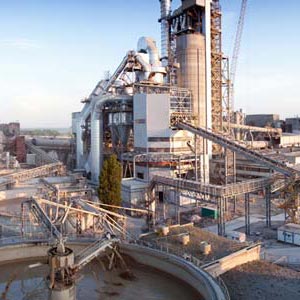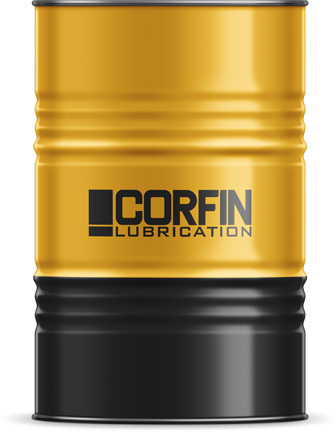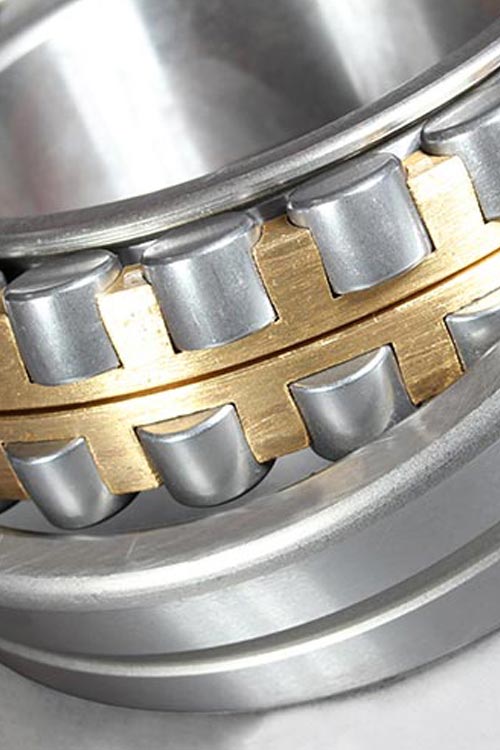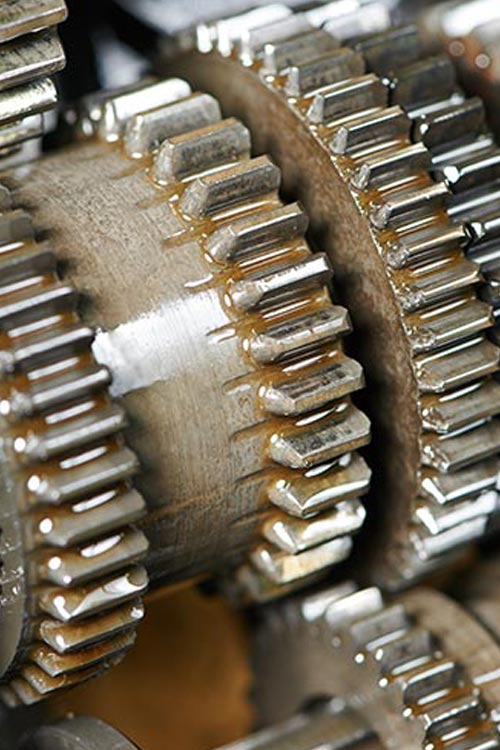SKU 310108
Category Greases
Lithium General Lubricating Grease
SPECIAL EP 2
Lithium General Lubricating Grease Advantages
SPECIAL EP 2 is a brown, mineral base oil and lithium soap multipurpose grease reinforced with extreme pressure additive. They show long-term performance even under impact load at operating temperatures between -20 and 130 °C.
It helps to prolong maintenance times and extend service life. It also reduces costs by extending bearing life.

Protects and seals bearings in all aqueous environments.
Perfectly compatible with elastomers and plastics.
Provides extra protection against corrosion and rust.
Lithium General Lubricating Grease Features
- Wide operating temperature range from -20 / 130 °C
- Lubricating grease Special Ep2 is extra durable in high pressure environments with its reinforced structure.
- They provide superior protection against corrosion and rust owing to their antioxidant and anti-corrosion additives.
- Long-lasting performance even under impact load
- It can be easily used in centralized lubrication systems.

Lithium General Lubricating Grease Usage Areas
Which Industries
Should Prefer?



You can contact us for any questions you may have
YOU MAY
ALSO
INTEREST
PRODUCTS
Lithium General Lubricating Grease Tech Data
| ANALİZLER | STANDART | BİRİM | SONUÇ |
|---|---|---|---|
| Color | Brown | ||
| Appearance | Homogeneous | ||
| Thickener | Lithium | ||
| Base Oil | Paraffinic Mineral | ||
| Base Oil Viscosity (cst) at 40 °C | ASTM D445 | cst | 140 |
| Temperature Range | °C | -20 / 130 | |
| NLGI Class | 2 | ||
| Penetration | ASTM D217 | mm/10 | 265 – 295 |
| Dropping Point | ASTM D2265 | °C | > 190 |
| Seperation from Oil (% weight) 30 hours / 100 °C | ASTM D6184 | %wt | % 6,50 |
| Seperation from Oil (% weight) 7 days / 40 °C | IP 121 | %wt | 0,26 |
| Four Ball Test 1 hour/75 °C - 40kg (392 N) | ASTM D2266 | mm | 0,49 |
| Four-Ball EP Test 10 sec. / 1770 rpm Speed | ASTM D2596 | kg | > 200 |
| Water Spray (% weight) 38.5 °C, 5 min, Max | ASTM D4049 | %wt | % 15 |
| Rust Test | ASTM D1743 | Pass |
Lithium General Lubricating Grease Frequently Asked Questions
Contact Form

MADE IN
TÜRKİYE
FOR ALL ORDERS
FREE SHIPMENT
ON-SITE PROBLEM
DETECTION
TECHNICAL
CONSULTING
Lubricating grease consists of at least 80 per cent base oils and 10 to 15 per cent thickeners. However, making a grease is not just a matter of mixing a range of ingredients.
Grease formulation is a complex process that requires multiple interactions between base oils, thickeners, extreme pressure (EP) additives, anti-wear additives, solid lubricants, antioxidants, tackifiers and friction modifiers.
The final lubricating grease properties depend not only on the formulation, but also on the manufacturing process (including homogenisation procedures) and the conditions under which the grease is stored.
The thickeners provide a fibrous matrix that contains the base oil. Under pressure some of this oil is released into the space between the mating surfaces of the machine parts to which it provides lubrication. When the pressure is removed, the lubricating grease is drawn back into the oil thickener matrix.
At the molecular level, the thickener is attracted to the polar component of the base oil (usually the oxygen atoms in a triglyceride or other oxygenated oil molecule). These attractions take the form of hydrogen bonding, capillary action and van der Waals forces and trap about 75% of the oil in the thickener. About one third of this 75% oil can be removed from the thickener matrix by gravity alone.
DIFFERENT GREASES FOR DIFFERENT INDUSTRIES
Different types of lubricating greases are used in various industries. For example, the mining and construction industries used calcium and calcium complex greases in the past, but are now moving towards calcium sulphonate complex greases.
Lithium and lithium complex multipurpose (MP) greases and aluminium complex greases are also widely used. Since most of the work in these areas takes place outdoors, these industries are more interested in biodegradable and environmentally friendly products.
A variety of calcium or lithium multipurpose lubricating greases are used in marine applications. Calcium sulphonate greases are also used as they hold better under salt spray. Marine industries are also moving towards greases that are biodegradable and comply with Ship General Permit regulations.
The agricultural and forest industries use lithium multipurpose greases and are moving towards vegetable-derived (ester) base oils due to their biodegradability. Food industry applications must comply with their own strict regulations and are moving towards calcium, clay and silica greases. They can also use aluminium complex and calcium sulphonate greases.
In the past, open gear applications relied on asphalt-based products. Now aluminium complex based lubricating grease is preferred over other types. Fixed speed joints can use lithium and lithium complex greases containing molybdenum sulphide or graphite EP additives, or preferably polyurea greases. Thus, the price of lubricating grease varies according to the type and purpose of use.
The information contained on this page is based on our current experience and is intended to provide information on appropriate use or application based on technical experience. It does not constitute a warranty or guarantee for the product. It is recommended that you contact us for your specific applications and for more comprehensive information. Akoni Kimya reserves the right to change all of the information on this page without notice.
SKU 310108
Category Greases
Lithium General Lubricating Grease
SPECIAL EP 2

THICKENER
Lithium
BASE OIL
Paraffinic Mineral
NLGI
2
18 kg, 180 kg
1-3 Weeks
-
MADE IN
TÜRKİYE
-
FOR ALL ORDERS
FREE SHIPMENT
-
ON-SITE PROBLEM
DETECTION
-
TECHNICAL
CONSULTING
Lithium General Lubricating Grease Advantages
SPECIAL EP 2 is a brown, mineral base oil and lithium soap multipurpose grease reinforced with extreme pressure additive. They show long-term performance even under impact load at operating temperatures between -20 and 130 °C.
It helps to prolong maintenance times and extend service life. It also reduces costs by extending bearing life.

Protects and seals bearings in all aqueous environments.
Perfectly compatible with elastomers and plastics.
Provides extra protection against corrosion and rust.
Lithium General Lubricating Grease Features
- Wide operating temperature range from -20 / 130 °C
- Lubricating grease Special Ep2 is extra durable in high pressure environments with its reinforced structure.
- They provide superior protection against corrosion and rust owing to their antioxidant and anti-corrosion additives.
- Long-lasting performance even under impact load
- It can be easily used in centralized lubrication systems.

Lithium General Lubricating Grease Usage Areas
Which Industries
Should Prefer?


You can contact us for any questions you may have
IN THESE PRODUCTS
YOU MAY BE INTERESTED
Lithium General Lubricating Grease Tech Data
| ANALİZLER | STANDART | BİRİM | SONUÇ |
|---|---|---|---|
| Color | Brown | ||
| Appearance | Homogeneous | ||
| Thickener | Lithium | ||
| Base Oil | Paraffinic Mineral | ||
| Base Oil Viscosity (cst) at 40 °C | ASTM D445 | cst | 140 |
| Temperature Range | °C | -20 / 130 | |
| NLGI Class | 2 | ||
| Penetration | ASTM D217 | mm/10 | 265 – 295 |
| Dropping Point | ASTM D2265 | °C | > 190 |
| Seperation from Oil (% weight) 30 hours / 100 °C | ASTM D6184 | %wt | % 6,50 |
| Seperation from Oil (% weight) 7 days / 40 °C | IP 121 | %wt | 0,26 |
| Four Ball Test 1 hour/75 °C - 40kg (392 N) | ASTM D2266 | mm | 0,49 |
| Four-Ball EP Test 10 sec. / 1770 rpm Speed | ASTM D2596 | kg | > 200 |
| Water Spray (% weight) 38.5 °C, 5 min, Max | ASTM D4049 | %wt | % 15 |
| Rust Test | ASTM D1743 | Pass |
Lithium General Lubricating Grease Frequently Asked Questions
Contact Form
Lubricating grease consists of at least 80 per cent base oils and 10 to 15 per cent thickeners. However, making a grease is not just a matter of mixing a range of ingredients.
Grease formulation is a complex process that requires multiple interactions between base oils, thickeners, extreme pressure (EP) additives, anti-wear additives, solid lubricants, antioxidants, tackifiers and friction modifiers.
The final lubricating grease properties depend not only on the formulation, but also on the manufacturing process (including homogenisation procedures) and the conditions under which the grease is stored.
The thickeners provide a fibrous matrix that contains the base oil. Under pressure some of this oil is released into the space between the mating surfaces of the machine parts to which it provides lubrication. When the pressure is removed, the lubricating grease is drawn back into the oil thickener matrix.
At the molecular level, the thickener is attracted to the polar component of the base oil (usually the oxygen atoms in a triglyceride or other oxygenated oil molecule). These attractions take the form of hydrogen bonding, capillary action and van der Waals forces and trap about 75% of the oil in the thickener. About one third of this 75% oil can be removed from the thickener matrix by gravity alone.
DIFFERENT GREASES FOR DIFFERENT INDUSTRIES
Different types of lubricating greases are used in various industries. For example, the mining and construction industries used calcium and calcium complex greases in the past, but are now moving towards calcium sulphonate complex greases.
Lithium and lithium complex multipurpose (MP) greases and aluminium complex greases are also widely used. Since most of the work in these areas takes place outdoors, these industries are more interested in biodegradable and environmentally friendly products.
A variety of calcium or lithium multipurpose lubricating greases are used in marine applications. Calcium sulphonate greases are also used as they hold better under salt spray. Marine industries are also moving towards greases that are biodegradable and comply with Ship General Permit regulations.
The agricultural and forest industries use lithium multipurpose greases and are moving towards vegetable-derived (ester) base oils due to their biodegradability. Food industry applications must comply with their own strict regulations and are moving towards calcium, clay and silica greases. They can also use aluminium complex and calcium sulphonate greases.
In the past, open gear applications relied on asphalt-based products. Now aluminium complex based lubricating grease is preferred over other types. Fixed speed joints can use lithium and lithium complex greases containing molybdenum sulphide or graphite EP additives, or preferably polyurea greases. Thus, the price of lubricating grease varies according to the type and purpose of use.
The information contained on this page is based on our current experience and is intended to provide information on appropriate use or application based on technical experience. It does not constitute a warranty or guarantee for the product. It is recommended that you contact us for your specific applications and for more comprehensive information. Akoni Kimya reserves the right to change all of the information on this page without notice.





